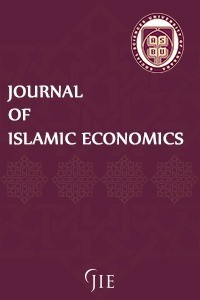Rational Behavior in Islam (Islamic Rationalism): A Critical Evaluation of the Extreme Rationality Assumption
Rational Behavior in Islam (Islamic Rationalism): A Critical Evaluation of the Extreme Rationality Assumption
Rationality, Satisfaction, Utility function, Well-Being, Islamic economics Economic man,
___
- Refernece 1: Al-Ghazali, A.-H. (2008). Al-Mustasfa Min A’lm Al-Usul. Al-Madina Al-Munawwara Company. https://waqfeya.com/book.php?bid=1140
- Reference 2: Al-Jarhi, M. A. (2021). Economic Analysis: An Islamic Perspective (vol. 1). Albaraka Group. https://ulifam.asbu.edu.tr/sites/digerleri/ulifam.asbu.edu.tr/files/inline-files/Economic Analysis%2C An Islamic Perspective Volumel I_0.pdf
- Başlangıç: 2021
- Yayıncı: Ankara Sosyal Bilimler Üniversitesi
An Empirical Analysis of Inflation Targeting in Dual Banking System: Case Study of Turkey.
Shariah Compliance Status and Value of Analysts’ Recommendation Revisions: Evidence from Malaysia
Murat YAŞ, Mohamed ESKANDAR SHAH
Davranışsal Finansta Bilişsel Yansıma ve Karar Vermede Z Kuşağının Eğilimleri
Nevra YILDIRIMER, Fadime ALP, Sevgi BAL, Kamola BAYRAM
Analysis of Europe's First Fully-Fledged Islamic Digital Bank in the Arena of New Age Banking
